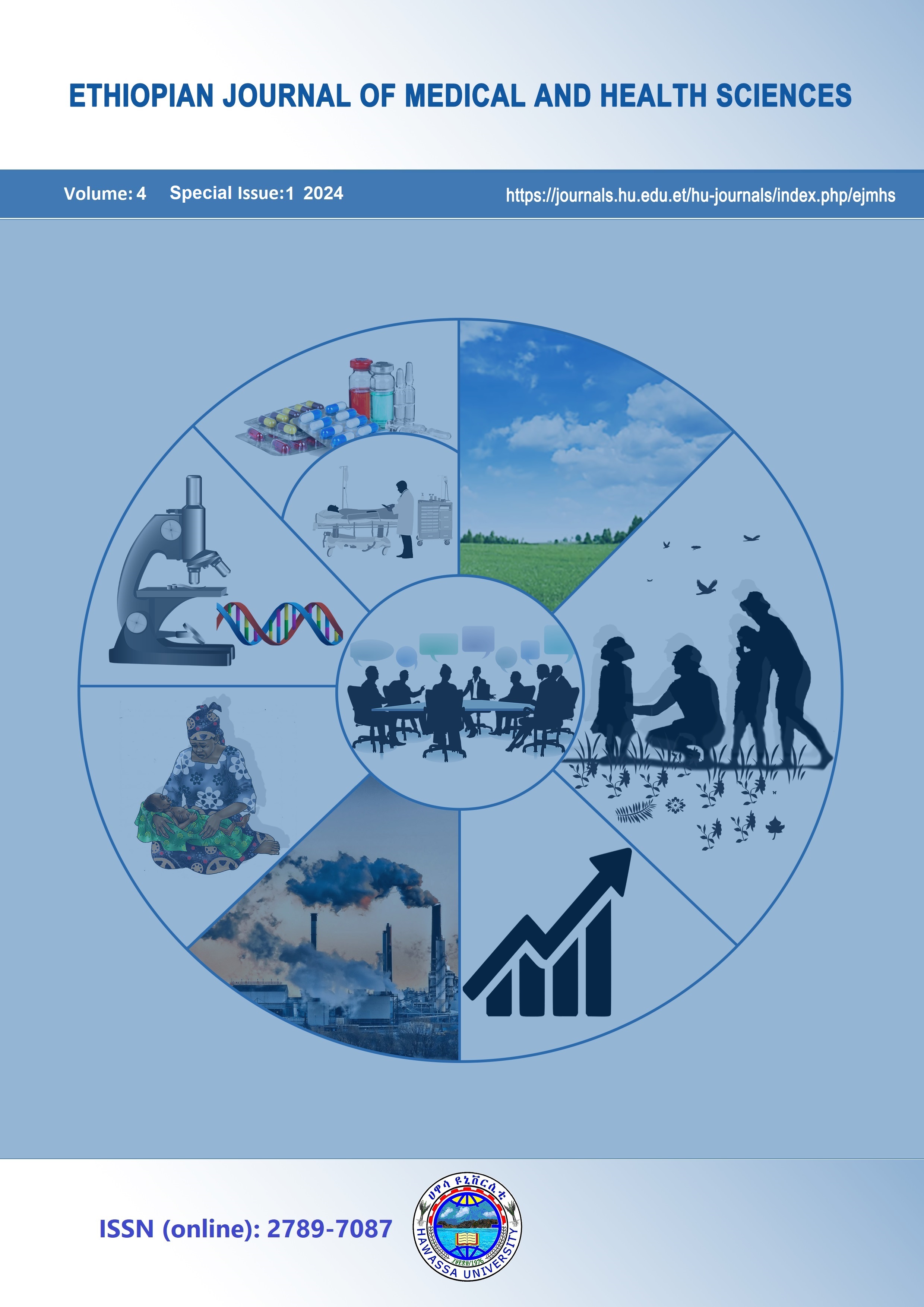Accelerated Mentors Training for HIS transformation Using Practice Based Learning Approach (PBLA): experience from Hawassa University CBMP, Ethiopia
Accelerated Mentors Training for HIS transformation
DOI:
https://doi.org/10.82127/5zfjn395Keywords:
Accelerated, mentorship, training, Practice-Based Learning Approach, CBMP, Health Information Systems.Abstract
Background: The implementation of the Health Information Systems (HIS) transformation agenda of Ethiopia’s Ministry of Health plays a critical role in improving healthcare delivery. However, achieving this requires skilled mentors to guide healthcare professionals at each healthcare administrative level and health facilities. The Capacity Building and Mentorship Program (CBMP) is a collaborative program between Ethiopia’s Ministry of Health (MOH) and six public universities, including Hawassa University, aimed at transforming the health information system. A significant challenge in sustaining these changes, especially at the woreda and facility levels where the program is expected to be implemented, is the shortage of trained HIS mentors. To address this critical gap, CBMP implemented an accelerated HIS mentorship training using a predominantly context-based, Practice-Based Learning Approach (PBLA).
Methods: Practice-based short-term accelerated mentorship training for 25 newly recruited mentors and HIS workers was conducted from May 5-10, 2024 followed by one month of practical learning and follow-up activities at the participants' respective facilities. Participants were purposively selected from Hawassa University CBMP, CBMP implementation woredas/ districts in the Central Ethiopia Region and Sidama National Regional State, as well as from Hawassa University CBMP Consortium Universities (Dilla and Arbaminch Universities), utilizing a PBLA. During the training sessions, a brief introduction to mentorship and its implementation in HMIS was provided. An overview of the IR Implementation Guideline in mentoring, how to use standard HIS assessment tools during mentoring the mentees, and the practical attachment of the training with actual health facilities for mentorship practical training were also covered. During this time, trainee mentors were assessed based on tangible improvements in Health Information System (HIS) changes, demonstrated through real-time guidance of mentees and measurable results at targeted facilities. Data was recorded using Kobo Toolbox and analyzed using SPSS version 27 and STATA version 17. The outcome of the training, observed as a real change for improvement in HIS, was assessed using before- and after-intervention assessments with a paired t-test to measure the training’s practical effectiveness.
Results: As an immediate outcome of the practical training, the trainees' mentorship for change demonstrated remarkable improvements in practical HIS areas. The intervention significantly enhanced HIS scores at all health facilities. For instance, in second-stage facilities (Health Centers, Health Posts, and the primary hospital), the HIS score improved from 50.2% to 75.3%, 43.5% to 63%, and 51% to 74% respectively. These improvements were statistically significant using a Paired t-test (p<0.05).
Conclusion: The accelerated mentorship training using the PBLA approach in the actual work area looks effective and efficient by reducing the number of training days, focusing on skills transfer through practice rather than theory, and meeting dual purposes; the training and change in HIS at the same time. Thus, the accelerated mentorship training using the PBLA approach is a promising method to meet the current critical need for IR mentors.

